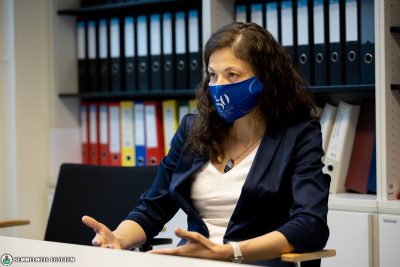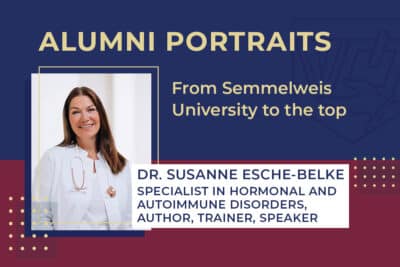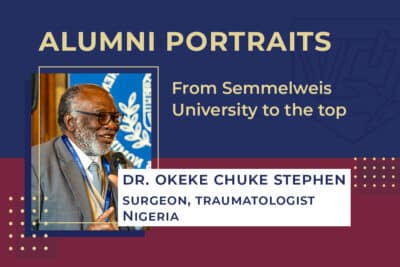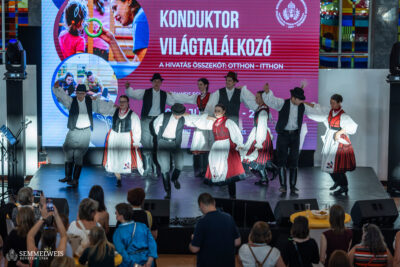According to Dr. Katalin Fogarasi, the English-Hungarian health sciences translator and interpreter training has a decade-long history at Semmelweis University – it was first started at the Faculty of Health Sciences, but since 2021 it has been run by the Department of Languages for Specific Purposes. She pointed out that a survey among translation agencies carried out by the institute showed that demand for German translations in health sciences is growing. This is why it was considered important that the training, which has so far been available only in English, should also be available in German.
 “Due to the growth in health tourism and mobility, it is becoming more and more common that medical records, surgical descriptions, treatment plans, nursing documentation and autopsy reports need to be translated into German,” the director explained. “It is also common for doctors or health professionals working in other fields to be involved in translating foreign textbooks,” she added. Dr. Katalin Fogarasi stressed that they do not train simultaneous interpreters, but consecutive interpreters, who deliver lectures on biomedical topics in bigger or smaller blocks, possibly improvised. She stressed that since German is an important language of education at the university, the newly trained translators can support university education beyond the strengthening of international health economic relations, knowledge sharing, patient care and health tourism: long-term plans include making notes and teaching materials, which have so far been available mostly in Hungarian and English, available in a trustworthy form for German-speaking students, which is something the new training can contribute to a great extent.
“Due to the growth in health tourism and mobility, it is becoming more and more common that medical records, surgical descriptions, treatment plans, nursing documentation and autopsy reports need to be translated into German,” the director explained. “It is also common for doctors or health professionals working in other fields to be involved in translating foreign textbooks,” she added. Dr. Katalin Fogarasi stressed that they do not train simultaneous interpreters, but consecutive interpreters, who deliver lectures on biomedical topics in bigger or smaller blocks, possibly improvised. She stressed that since German is an important language of education at the university, the newly trained translators can support university education beyond the strengthening of international health economic relations, knowledge sharing, patient care and health tourism: long-term plans include making notes and teaching materials, which have so far been available mostly in Hungarian and English, available in a trustworthy form for German-speaking students, which is something the new training can contribute to a great extent.
The German-Hungarian health sciences translator and interpreter training course starts in February 2022 at the Department of Languages for Specific Purposes. The English-Hungarian translator and interpreter training will also be renewed: from February, most of the courses in both language pairs are going to be held online, and practical training will be based on real translation and interpreting projects.
The deadline for applications is 4 February 2022; more information is available on the department’s website.
The Department of Languages has also launched new, practice-oriented, mainly technical language courses, where one can pay to learn clinical terminology outside the classroom, in a more specific and intensive way, with the help of simulating patients, in an authentic linguistic and professional environment. The courses, first announced in October 2021, will be open for registration again in the spring semester, with more information available on the Department’s website. They are primarily aimed at those preparing for an internship or scholarship abroad, but the courses can also help in preparing for domestic or international medical language exams, preparing presentations in a foreign language, or using the language of healthcare business. They are also recommended for anyone who works or will work with patients or health professionals who are not Hungarian natives in any capacity. The specialised courses provide students with additional information and practice opportunities that are not available in larger undergraduate classes. The extra service, designed to support students’ careers, is available in blocks of 20 and 40 hours, 1×2 or 1×4 hours per week on Friday afternoons and Saturday mornings, with most of the classes taking place online.
Bernadett Bódi
Translation: Viktória Kiss
Photo: Attila Kovács – Semmelweis University


